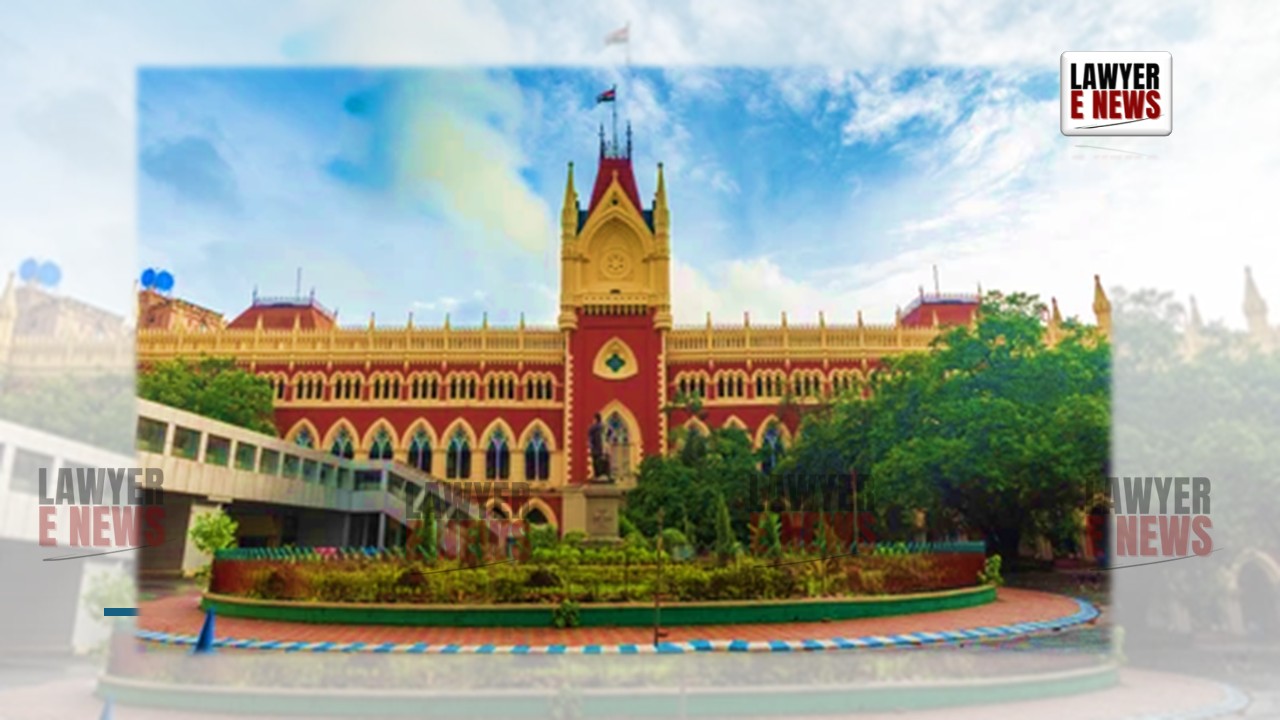-
by Admin
15 February 2026 5:35 AM



In a significant judgment, the Calcutta High Court has overturned a lower tribunal’s decision denying compensation to the claimant under Section 163A of the Motor Vehicles Act, 1988. The court, presided by Justice Shampa Dutt (Paul), re-evaluated the case under Section 166 of the Act, highlighting the principles of just compensation and the role of negligence in determining liability.
The case revolves around the tragic death of Saiful Mondal @ Chhayful Mondal, a 20-year-old businessman, who succumbed to injuries sustained in a motor vehicle accident on October 11, 2011. The victim was riding a motorcycle owned by his father when he lost control due to poor road conditions, resulting in a fatal accident. The Motor Accident Claims Tribunal (MACT) initially denied compensation under Section 163A, as the deceased was riding his father’s vehicle.
The court scrutinized the applicability of Sections 163A and 166 of the Motor Vehicles Act. It emphasized that Section 163A provides for compensation on a no-fault basis, while Section 166 requires proof of negligence. Given the specifics of this case, the court deemed it appropriate to reassess the claim under Section 166, focusing on just compensation principles.
The insurance company contended that the policy did not cover the deceased as he was driving a vehicle owned by his father, thus not qualifying as a third party. However, the court noted that the deceased could be considered a third party, entitled to claim compensation under Section 166, which allows claims for just compensation irrespective of policy limitations concerning the insured driver.
The High Court employed the multiplier method to calculate compensation, taking into account the victim’s age, potential future earnings, and other factors. Future prospects were added at 40%, and personal expenses were deducted at 50%, considering the deceased was a bachelor. General damages were also enhanced to account for inflation since 2017.
Justice Shampa Dutt (Paul) elucidated the necessity of treating the claim under Section 166 due to the deceased not being solely at fault. The judgment underlined, “In cases where the deceased is not solely responsible for the accident, claims must be fairly assessed under Section 166 to ensure just compensation.”
Justice Dutt stated, “The principle of just compensation is paramount. It is the court’s duty to ensure that the victim’s dependents receive adequate recompense, particularly when the deceased is not solely culpable for the incident.”
The High Court’s decision to convert the claim to Section 166 and award Rs. 6,88,800/- in compensation underscores the judiciary’s commitment to fair and just recompense in motor accident cases. This judgment sets a precedent, emphasizing the importance of assessing claims based on the principle of justice rather than strictly adhering to the statutory provisions. The case reiterates the court's role in Interpreting the law to serve the ends of justice, particularly in sensitive matters involving the loss of life.
Date of Decision: July 16, 2024
